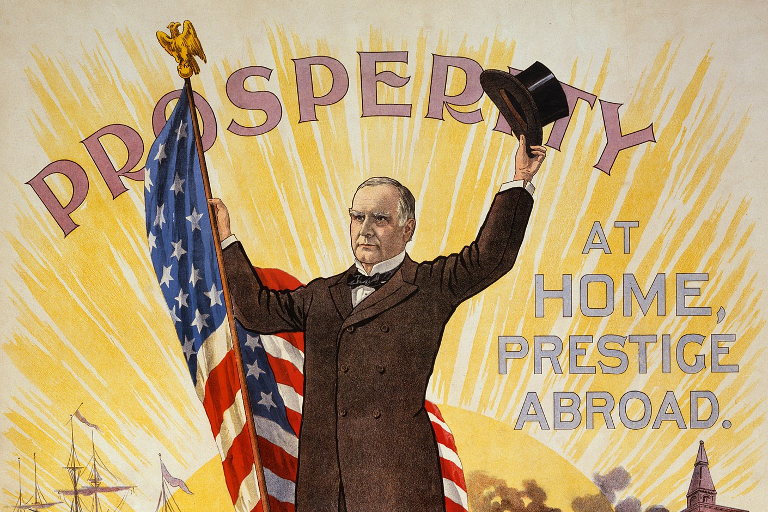The most effective way to restrict democracy is to transfer decision-making from the public arena to unaccountable institutions: kings and princes, priestly castes, military juntas, party dictatorships, or modern corporations.-Noam Chomsky[1]
Nowadays the terms democracy and capitalism have often been used almost as synonyms. This interchangeability has penetrated not only the official political vocabulary but also social imaginaries. Many who feel oppressed and/or exploited by the current system tend to blame both concepts.
A significant part of the Left also participates in this terminological equalization, because it wrongly interprets democracy simply as a process dedicated to the guaranteeing of rights and liberties. But even so, philosopher Cornelius Castoriadis suggests that those who believe this are still wrong because the emergence of rights and liberties was not an occurrence in the interest of capitalism[2]. According to him, these rights and liberties were demanded at the outset by the struggles of the underprivileged, as well as of the inhabitants of the newly emerged free towns. Furthermore, he notes that these rights and liberties do not correspond to the “spirit” of capitalism: the latter demands, rather, the Taylorist “one best way” or the “iron cage” of Max Weber. The idea that they might be the political counterpart of and presupposition for competition in the economic market is equally false. When we consider the inner tendency of capitalism, Castoriadis continues, we see that capitalism culminates in monopoly, oligopoly, or alliances among capitalists.
The truth is that democracy, in its authentic direct form, has nothing to do with capitalism and is in fact at odds with it. James Madison, one of US’s Founding Fathers, seems to have been aware of this when saying that democracies have ever been found incompatible with personal security or the rights of property[3].
Capitalism as an Engine of Inequality
Democracy is a system of radical political equality. Hannah Arendt defines it as a political system that guarantees civil and political rights while allowing all willing citizens direct participation in government[4]. It places politics in charge of all spheres of social life. It is clear that this is not the system we have today.
Capitalism, on the other hand, nurtures social antagonisms that lead to social inequalities, and its proponents often openly defend inequality as a natural aspect of human nature[5]. In doing so, it places economics as a separate and supreme field of human interaction.
In a capitalist setting, people are pitted against each other to compete for resources, space, and time. It is not only economic classes competing with each other, but also people from similar social milieu. And where there is antagonism there always are winners and losers. Steven W. Thrasher concludes that the disparities in wealth that we term “income inequality” are no accident, they happened by design, and the system structurally disadvantages those at the bottom.[6] Furthermore, researchers D. B. Krupp and Thomas R. Cook suggest in a study that social inequalities are being amplified by local competition[7], which is the cornerstone of free-market economics.
Anthropologist Jason Hickel exemplifies the way economic inequalities create and strengthen power discrepancies in the following way:
Every additional dollar that goes to the rich adds more to their power, and the richer they are, the more power it adds. Why? Because the more distant the new money is from any given need threshold, the more it is available to be spent on power. The relationship between income and power is, in effect, an inverse logarithmic relationship. Plus, we need to account for the fact that the more money the rich spend on power, the more they inflate its price, pushing power ever-further out of the reach of the poor.[8]
Furthermore, although capitalism has often been presented as a non-bureaucratic system, in reality, it functions in a strictly hierarchical top-down manner. Iranian sociologist Jacob Rigi explains that:
labour is still compartmentalized in closed spaces and is managed despotically by representatives of capital. While small select group of workers may enjoy partial autonomy the total labor processes is centralized by managers who integrate the work of separate workers into a total cooperative work process. […] Individual producers do not choose their tasks, or the pace, time and place of their work. In other words the work process is micro-territorialized both spatially and temporally.[9]
In fact, bureaucracy was strengthened by the rise of capitalism. The latter was actually very dependent on bureaucratized structures and it thus nurtured them. Anthropologist David Graeber finds out in his research on the Utopia of Rules that market reforms always increase the total number of bureaucrats, as was the case with the Reagan administration, for example[10]. Social ecologist Murray Bookchin points to another historic example of this trend by claiming that we in the United States 200 years ago started out with the notion of limited government — virtually no government interference — and we now have a massive quasi-totalitarian government.[11]
As noted above, direct democracy (as the only real form of democracy), follows completely different logic from capitalism. It is a political project that strives at radically redistributing decision-making power equally among all members of society. In doing so, it directly attacks all other forms of inequality, as citizens undertake directly the management of all social spheres via public grassroots institutions. Instead of competition, it implies cooperation and equal participation.
Noam Chomsky underlines this stark difference:
democracy […] means that the central institutions in the society have to be under popular control. Now, under capitalism we can’t have democracy by definition. Capitalism is a system in which the central institutions of society are in principle under autocratic control. Thus, a corporation or an industry is, if we were to think of it in political terms, fascist; that is, it has tight control at the top and strict obedience has to be established at every level — there’s a little bargaining, a little give and take, but the line of authority is perfectly straightforward. Just as I’m opposed to political fascism, I’m opposed to economic fascism. I think that until major institutions of society are under the popular control of participants and communities, it’s pointless to talk about democracy.[12]
By placing all power equally in the hands of all people, direct democracy abolishes the separation of the different spheres of social life. Judiciary, legislative, economic, cultural, and other issues are all discussed and decided upon in the public sphere by the empowered citizenry. It is the people collectively deciding the rules, norms, and limits of all their social activities and can alter them whenever the majority deems it necessary.
In this line of thought then, Bookchin suggests that democracy politicizes the economy and dissolves it into the civic domain[13]. In the democratic project, according to Bookchin, “property” is integrated into the commune as a material constituent of its libertarian institutional framework, indeed as a part of a larger whole that is controlled by the citizen body in assembly as citizens” not as vocationally oriented interest groups.[14]
Unlike economistic notions like ”nationalization” and ”privatization”, both implying the separation of the economy from politics, direct democracy advances the subjugation of economic activities (along with all other social spheres) to the political institutions of self-management. According to Bookchin, the economy ceases to be merely an economy in the strict sense of the word ”whether as “business,” “market,” capitalist, “worker-controlled” enterprises and instead the citizen body in face-to-face assembly absorbs the economy as an aspect of the public sphere[15]. From this follows that in the project of direct democracy it will be more appropriate to speak of “municipalization” of the economy.
Conclusion
We have to understand that democracy, in its true meaning is something much more than a mere procedure that can be used within other social systems. Conducting referenda once in a while, while maintaining the separation of power from society via nation-states and/or capitalist markets, does not make one regime more democratic. It may give it a more humane face, but it remains an oligarchy (society ruled by a small minority) nonetheless.
As long as there are centralized and bureaucratic entities, regardless of their ideological mantle, we cannot talk of democracy. It is only when the people — as demos — self-empower themselves and begin self-instituting their collective co-existence that we can begin seeing the seeds of a democratic society.
As Castoriadis suggests,
rotation in office, sortition, decision-making after deliberation by the entire body politic, elections, and popular courts did not rest solely on a postulate that everyone has an equal capacity to assume public responsibilities: these procedures were themselves pieces of a political educational process, of an active paideia, which aimed at exercising — and, therefore, at developing in all — the corresponding abilities and, thereby, at rendering the postulate of political equality as close to the effective reality of that society as possible.[16]
Only by conceiving democracy as a holistic project that we can understand that it is not only incompatible with capitalist relations and statecraft, but it requires their complete abolition. As Prof. Dr. Wolgang Merkel concludes,
capitalism and democracy follow different logics: unequally distributed property rights on the one hand, equal civic and political rights on the other; profit- oriented trade within capitalism in contrast to the search for the common good within democracy; debate, compromise and majority decision-making within democratic politics versus hierarchical decision-making by managers and capital owners.[17]
It is up to all of us collectively to make the choice of the 21st century — democracy or barbarism.
References:
[1] Z Magazine (May 1998).
[2] Cornelius Castoriadis: The Rising Tide of Insignificancy: The Big Sleep (unauthorized translation, 2003): pp350–351.
[3] James Madison, Alexander Hamilton, and John Jay: The Federalist Papers: The Classic Original Edition (New York: SoHo Books, 2011): p. 26.
[4] https://www.tandfonline.com/doi/abs/10.1558/crit.v12i3.396?journalCode=ycrh20
[5] https://www.gisreportsonline.com/is-economic-inequality-a-bad-thing,politics,2459.html
[6] https://www.theguardian.com/commentisfree/2015/dec/05/income-inequality-policy-capitalism
[7] D. B. Krupp & Thomas R. Cook: “Local Competition Amplifies the Corrosive Effects of Inequality” in SAGEJournals Volume: 29 issue: 5 (2018): pp824–833. (https://journals.sagepub.com/stoken/default+domain/10.1177/0956797617748419-free/full)
[8] https://www.resilience.org/stories/2019-07-05/inequality-metrics-and-the-question-of-power/
[9] http://peerproduction.net/issues/issue-1/invited-comments/a-new-communist-horizon/
[10] https://www.salon.com/test3/2015/03/05/i_found_myself_turning_into_an_idiot_david_graeber_explains_the_life_sapping_reality_of_bureaucratic_life/?fbclid=IwAR0SXKDal3xd4z2aqgYMV1FjxBzG8MyDpBXNy-iChZZz43b0b8Sx1DBh2EM
[11] http://reason.com/archives/1979/10/01/interview-with-murray-bookchin/
[12] Noam Chomsky: Language and Politics (California: AK Press, 2004): p138.
[13] https://libcom.org/library/municipalization-murray-bookchin
[14] https://libcom.org/library/municipalization-murray-bookchin
[15] https://libcom.org/library/municipalization-murray-bookchin
[16] Cornelius Castoriadis: The Rising Tide of Insignificancy: The Big Sleep (unauthorized translation, 2003): p349.
[17] Wolfgang Merkel and Sascha Kneip (eds.): Democracy and Crisis: Challenges in Turbulent Times (Berlin: Springer International Publishing, 2018): p253.
Teaser photo credit: By Northwestern Litho. Co, Milwaukee – This image is available from the United States Library of Congress's Prints and Photographs divisionunder the digital ID cph.3b52834.This tag does not indicate the copyright status of the attached work. A normal copyright tag is still required. See Commons:Licensing for more information., Public Domain, https://commons.wikimedia.org/w/index.php?curid=13268600






